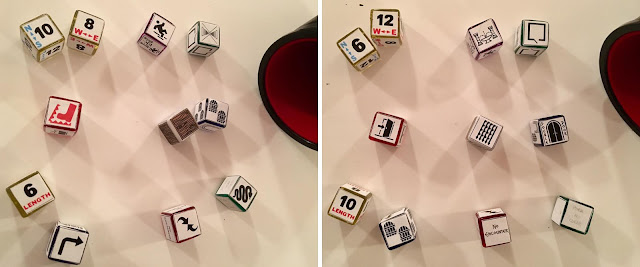
I recently developed an itch to play in a "dungeon" setting, like I did so many times in my youth with
Dungeons & Dragons. I had tried to scratch this itch with some dungeon-themed board games, but none of them were as fun or satisfying as tabletop miniatures games. I spent months reading through other miniatures rule sets that attempted to bring the basics of wargaming to a dungeon setting, but most were either too simplistic and reminded me of board games, or they required one person to act as a game master while the other players had the fun of clearing out a dungeon. Most of them also failed to meaningfully capture the experience of dungeon
exploration, and tended to have rote mechanics and generic encounters.
What I realized I ultimately wanted was a head-to-head set of dungeon delving rules that still played like a wargame and allowed all players to take their own warbands into the dungeon to explore, fight the denizens, and eventually cross paths with each other in the dark depths. I also wanted it to have some thematic and narrative tissue that connected the experiences and encounters in the dungeon environment, something D&D was particularly good at.
The photos below were shot during the first couple of play tests of my home-brew rules. My blog has many, many more such photos, as well as more detail on a lot of the mechanics I developed to craft this game.
Scrum in Miniature: https://miniaturescrum.blogspot.com/2017/11/ballads-of-dungeon-delving.htmlInterspersed with the game play photos are some examples of the card decks I've created for the game. My rules have been designed to be scenario-based to avoid everything feeling too generic. The encounters, treasures, room features, wandering monsters, traps, etc. are all thematic and location-specific. I plan on creating similar decks for other settings such as ruined temples, prisons, abandoned keeps, etc.)











After a couple of play tests, I continued to refine and add to the rules for dungeon delving. One idea to help speed up room and encounter generation was to develop a set of custom dice that could be rolled simultaneously to generate all of a room's basic information faster than making four or five sequential rolls and cross-referencing each separate table in the rule book. Below are some photos of the dice.

I have a short video explication of the dice in action on my blog, for the curious...
Scrum in Miniature: https://miniaturescrum.blogspot.com/2017/11/ballads-of-dungeon-delving.html